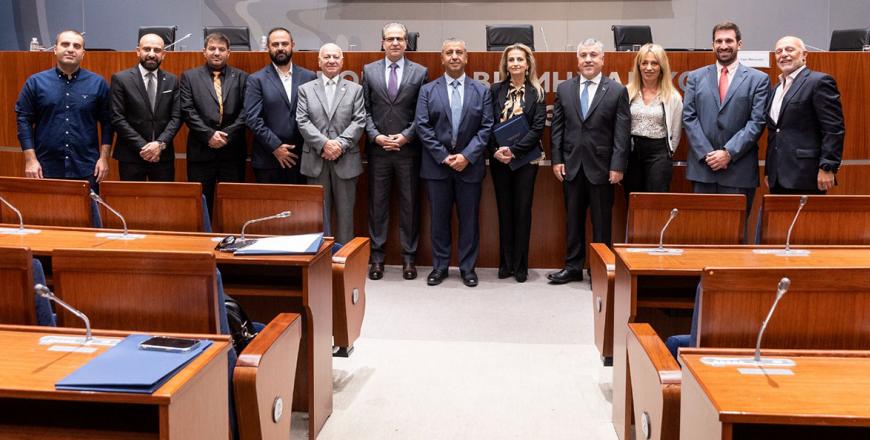You are here
Jordanian delegation, Tunisian officials enhance business ties
By Petra - Feb 20,2016 - Last updated at Feb 20,2016
TUNIS — A Jordanian delegation held several meetings with Tunisian officials last week, during which they discussed challenges facing the flow of Jordanian products, delays at Tunisian harbours and difficulties to register cosmetics.
They also looked at establishing joint investment projects in the medical equipment and other industries, in addition to enhancing investment partnerships in the tourism sector.
The delegation, headed by Amman Chamber of Commerce President Issa Murad, tackled ways to benefit from agreements signed between the two countries, exchange expertise in the fields of industrial estates and free zones, and increase exports.
Murad said Tunisian President Beji Caid Essebsi's visit to the Kingdom in October encouraged the Jordanian private sector to penetrate the Tunisian market and search for new markets as alternatives for Jordan's traditional markets.
He added that the Kingdom seeks to benefit from the Tunisian expertise in reaching European and African markets, especially due to the closure of traditional markets because of the security and political events in the region.
Jordan European Business Association's (JEBA) board of directors on Saturday discussed with Confederation of Tunisian Citizen Enterprises' (CONECT) executive office means to enhance bilateral cooperation and drawing up a joint programme to help Jordan penetrate European markets.
JEBA President Jamal Fariz commended the Jordanian-Tunisian relations, stressing the importance for these ties to reflect on the commercial and investment sectors.
Transportation was among the biggest obstacles for exports between the two countries, which requires considering the establishment of a maritime route and increasing cooperation in air transport, calling for enhancing collaboration in the tourist sector.
CONECT President Tareq Sharif said there is great potential to enhance bilateral economic cooperation and establish partnerships between both countries' private sectors to contribute to boosting commercial exchange.
Related Articles
AMMAN — Amman Chamber of Commerce (ACC) President Issa Murad is scheduled to head a delegation to conduct a business visit to Tunisia on Mon
AMMAN — In a visit organised by the Jordan-European Business Association (JEBA) in cooperation with the Arab-Hellenic Chamber of Commerce an
AMMAN — Jordanian products have the opportunity to access European markets due to their "high quality and competitive features", President o

















